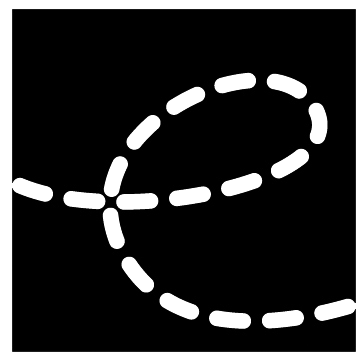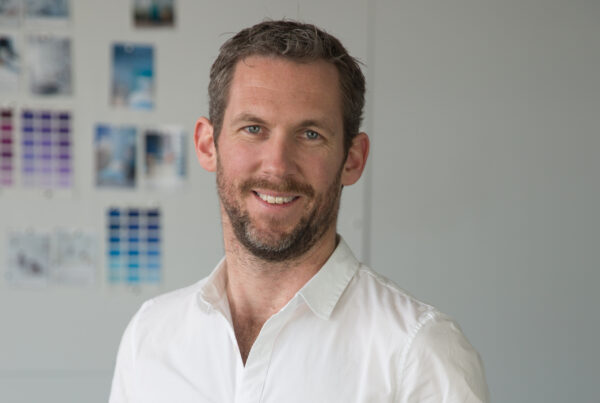

Accredited Manufacturer Spotlight: Daniel from LP Garments
This is a featured post written by a team member at LP Garments, an Ethical Clothing Australia accredited manufacturer.
My name is Daniel Pritchard and I run LP Garments with my partner, Vanny Le. I’m from Melbourne and have lived in Pakenham, Victoria for most of my life. Vanny was born in the south of Vietnam and migrated to Australia to study. Vanny and I now live and work together in Pakenham, where our clothing factory is located.
We started our manufacturing business completely by accident. Vanny and I both have a background in engineering, and we enjoy making things. I don’t think it really triggered in our mind that we would become garment manufacturers until the very moment that it happened.
”We wanted to create a workplace culture that embraces the diverse skills and unique values of those working with us.
Daniel Pritchard
Back in 2020 when COVID-19 first emerged, Vanny had decided to sew up some fabric face masks for our family as she has always enjoyed sewing and other crafty activities as a hobby. Some family members admired Vanny’s workmanship and asked to buy them for themselves and their friends. A few social media posts later, and we were overwhelmed with orders from our local area. Within two weeks, we were selling fabric masks Australia-wide, and I joined Vanny sewing in our lounge room to help keep up with the flow of orders.
We recognised that the demand for all things Aussie-made was booming, and we felt that it was a good time to do something in the textile industry. Once the face mask boom finished, we started working with other small brands and startups, helping them to keep up with their own production needs.
Our house started to fill up with Vanny’s industrial sewing machines and once the dining room table had become too awkward to cut large rolls of fabric, we took the leap and moved into our own factory space. Today, our small factory has a constant flow of fabrics coming in and finished garments heading off to our customers. It’s rewarding to see so many fellow local businesses grow alongside us and do great things.
Being a small family-run business, the types of roles we both play are quite diverse, so we don’t have singular job titles. Depending on the day, I’m the Sales and Marketing Manager, Accountant, Machine Repairman, Fabric Cutter, and Quality Control Inspector. Vanny’s titles vary from Sample Maker, Production Manager and Machinist, through to Customer Service Representative and Product Development Officer. All in all, we can say that both of our titles are “Partner” because we definitely couldn’t do it all alone!
A typical workday for me usually starts with a review of the upcoming projects and orders, and ensuring we have everything we need to proceed with production runs. I cut the fabrics and prepare them for Vanny to sew. Once they’re finished, I’ll give them a quality control check and get them ready to ship out to our customers. Vanny’s day involves a lot of sewing! She works on a variety of machines and has been using our new flatlock machine a lot lately, which has been a popular addition to our production capability.
Our specialty is working with knit fabrics, although we are quite adept with most types of light to midweight woven fabrics too. We make everything from basic T-shirts and pants to skirts and dresses, to more specialised flatlocked performance activewear (and just about everything in between).
”Being ECA accredited was a great trigger point for us in discussing the challenges surrounding price versus ethics of production in the garment industry with existing and prospective customers.
Daniel Pritchard
When we were first starting our business and getting a feel for the textiles industry in Melbourne, we would often get requests to do work that could only be done below minimum wage for workers. Through our network, we learned that it was incredibly common for outworkers to be paid significantly below the minimum wage. Some of the workers we met would work for 12 hours or more in a day just to make ends meet.
We wanted our business to be different and were keen to help drive a positive change in the industry, even with the little influence we had. We wanted to create a workplace culture that embraces the diverse skills and unique values of those working with us.
Being ECA accredited was a great trigger point for us in discussing the challenges surrounding price versus ethics of production in the garment industry with existing and prospective customers. Discussing these challenges more openly has led to a better mutual understanding of how garment production operates behind the scenes. This has given the designers and small businesses we collaborate with a new perspective on what it means for us to run our garment business ethically.
It’s great to see that for so many emerging brands and startups, the ethics of production behind their garments is becoming more front-of-mind. I think that the work that ECA does has been great for the industry and drives the dialog that leads to real change.



